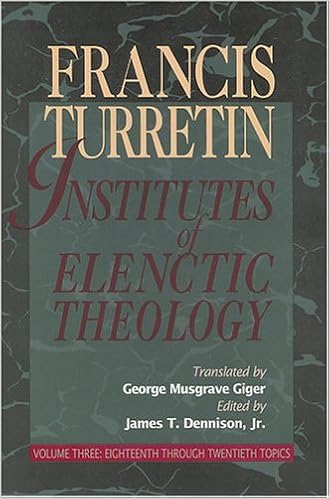TheInquirer
Puritan Board Junior
I was reading Turretin regularly awhile ago and stopped due to getting bogged down in philosophical terms that I hadn't come across before. Unfortunately, due to Turretin's precision and tight argumentation, not knowing those terms was a huge detriment to following his line of thought.
Any recommended helps or references to have on hand to help decipher Turretin? I do have Muller's Dictionary of Latin and Greek Theological Terms.
Any recommended helps or references to have on hand to help decipher Turretin? I do have Muller's Dictionary of Latin and Greek Theological Terms.



